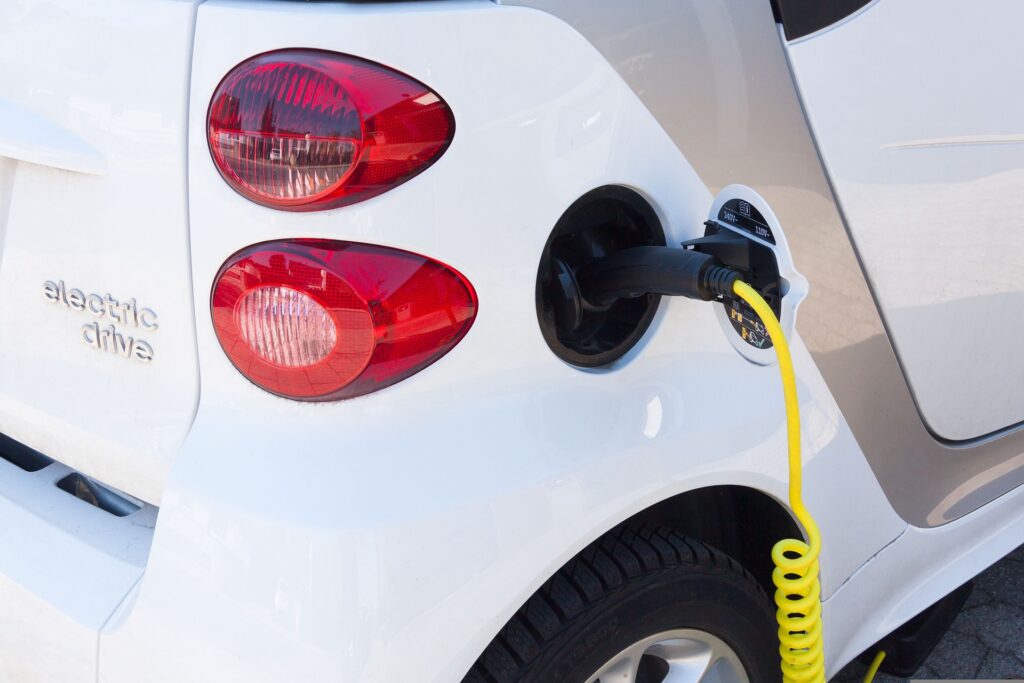
The motor industry is cursed with a number of unfortunate stereotypes. Whether it’s the money lender giving out money to people knowing they won’t be able to afford the repayments, or collections agents more concerned with breaking knees than collecting fees, most areas of the motor industry have had to defend themselves from these perceptions.
One of the more enduring stereotypes is the unscrupulous car salesman, selling dodgy cars on even dodgier finance to poor unsuspecting customers. While this image is usually as dated as the cars these salesmen supposedly sell, that hasn’t stopped the Financial Conduct Authority (FCA) from casting an eye at showroom floors.
As a result, dealers that wish to sell a car on finance will need to consider FCA regulation. And according to Graham Hill, vehicle finance broker and consultant, and vehicle finance director of the National Association of Commercial Finance Brokers (NACFB), this has caused some dealers to consider whether to sell cars on finance at all.
Hill says he’s spoken to a number of dealers who have told him "it doesn’t apply to me. I’ve been providing finance for X years and never had a problem. I’ll just apply for my licence and I’ll be fine."
However Hill points out in a number of these cases the dealers in question still need to put new FCA procedures in place, but are oblivious to the new requirements.
In this context, Hill is talking about smaller dealerships, and he says he has spoken to a number of these who have told him they are going to stop offering finance rather than apply for a full FCA licence.
How well do you really know your competitors?
Access the most comprehensive Company Profiles on the market, powered by GlobalData. Save hours of research. Gain competitive edge.

Thank you!
Your download email will arrive shortly
Not ready to buy yet? Download a free sample
We are confident about the unique quality of our Company Profiles. However, we want you to make the most beneficial decision for your business, so we offer a free sample that you can download by submitting the below form
By GlobalDataBigger dealerships, he notes, often have their own legal departments, or access to people able to provide legal advice, whereas some of the smaller dealers simply won’t have access to this level of help. However they will still be required to fill in all the paperwork in order to comply with the regulation, something necessary if they wish to continue selling cars on finance.
A recent Close Motor Finance survey of more than 200 dealerships revealed that, of those questioned, 86% intended to apply for full FCA authorisation when their interim permission expires. This would suggest that there may a slight fall in the number of dealers offering finance in the near future.
Martin Parr, FCA readiness manager at Alphera, says that this fallout would come from small dealerships, as Alphera has not had any feedback from dealers walking away from regulation.
Richard Roberts, managing director of multi-location Honda dealer Trident Garages, describes the authorisation process as the "greatest concern to dealers". He says: "Having had sight of the raft of application forms required to be completed this will take a huge amount of time and effort to complete."
The Close Brothers survey revealed that 33% of dealers think applying for an FCA licence will take a few hours, compared to 40% who thought it would take a few days and 28% who thought it would take a week or longer.
According to Alphera’s Martin Parr though, "a week is very optimistic".
His colleague Andy Gruber, director of Alphera Financial Services UK, agrees, saying: "It’s different than previously. It’s not just sitting down and working through an application. If you were to do it properly, and actually take the time to go through the form and have a material discussion about it, it will take over a week."
He adds: "If you just wanted all of the answers, it would take just a week. But having those discussions, and finding your position, and being clear on the guidelines is going to take time."
Louise Wallis, head of business development at the National Franchised Dealers Association (NFDA), describes a large part of her role as lobbying and liaising with the FCA to ensure regulation is not too burdensome, as well as helping members deal with compliance.
She says that the FCA is going to increase the cost of compliance, which will have an impact on overall profits. "The biggest worry is if compliance costs get shifted onto consumers, because then all it is doing is making buying cars more expensive," she says.
There is disagreement over whether the FCA is destined to cut into dealer margins. Wallis says that it’s "quite possible" that it will increase costs, due to compliance works and extra paperwork, and that these costs could be passed on to the consumer.
Hill agrees, saying: "In my opinion we will see wholesale increases in interest rates to cover the increases in costs as a result of the high cost of compliance. Administration costs will increase as a result of all the compliance documentation they will be required to complete. That cost has got to be recovered from somewhere and, yes, this could result on a squeeze on dealer margins.
"I would also suggest that all the costs simply can’t be absorbed, even if the dealer wanted to, as the profits just aren’t there these days. In the old days maybe, when brokers and dealers could make a substantial amount of income from the finance arrangement, it could have been absorbed, but because of the internet and the accessible competition via comparison sites, those profits are no longer there. So you can’t easily just absorb the costs," he adds.
In contrast, Gruber suggests there will not be a link between a loss in profits and the new regulation as a lot of dealers will already be complying with it. "At the end of the day, it’s a matter of documenting your processes and making sure they fit with the FCA requirements and making sure you have the right monitoring systems and controls in place, and in theory not a lot will have to change."
Parr at Alphera agrees, saying: "It’s more of a cultural change that the FCA is expecting. So it probably depends on how well the culture fits with the dealership. But once you’ve got the culture the FCA wants, it will go on to be business as usual."
This cultural change toward a greater degree of documentation is similar to the compliance costs Wallis at the NFDA speaks of, and she says: "There will have to be a level of shifting, partly because they’re going to have to evidence what they’re doing to make sure the FCA know they’re compliant, which has been less of the case under the old regime. And they’re going to have to make sure they have things in place to be able to report what they’re doing in a way that the FCA wants.
Roberts at Trident Garages isn’t sure which opinion is the correct one and says only time will tell. However he says he would be a lot more concerned if his industry was a more high-margin industry. "Ultimately sense will prevail and we will settle once more into delivering a service for a reasonable return," he concludes.
If it does increase costs, one area would be in additional staff to ensure FCA compliance. When questioned by Motor Finance, four out of five dealers either agreed or strongly agreed that FCA regulation has introduced the need for specialised dealers and business managers, with the remainder responding they neither agreed nor disagreed.
Separately, Roberts says the new regulation will not affect staff training or recruitment at Trident Garages, saying it: "Already has to recruit the calibre of staff that can handle sales delivered to customers in a way that treats the customer fairly." As a result, "the FCA will not really change our recruitment standards as they were already high."
According to Wallis any possible staffing situation is being eased by the current strength of the car market, which has meant dealers are reasonably happy and remain profitable.
Once the dealers start looking for permanent authorisation, as opposed to interim permission, the situation may change. However Wallis suggests this could actually lead to an increase in staff numbers. She says: "If compliance costs go through the roof, expenses may need to be cut, and staff may be one of those casualties. If anything, though, I think they will probably need more people though, as they’ll need more compliance people."
At Alphera Financial Services UK Gruber notes that any staffing issues will ultimately be dealer-specific, and says: "There will be a large number of dealers that are already compliant, that already have strong sales processes and training in place. For those dealers not a lot will have to change.
"But there will be some dealers, of course, that as part of the process, will uncover areas that need improving around, for example training, and they will have to implement this."
One area that will be affected is incentives. According to Wallis while incentives will remain any such schemes will need to be monitored with checks and balances. In addition: "You need to make sure the scheme isn’t unduly influencing a customer to take a particular product. So you need to make sure you’re incentivising products in the same way."
She adds that the FCA is against so-called ladder accelerator incentives, whereby the more times a dealer sells a product, the better the incentive becomes. As such, she says: "It doesn’t matter if you sell lots of a product, just that you don’t get a bigger increase for selling more of that product. It’s got to be linear.
Lack of communication
Part of the problem a number of dealers have had is a general lack of communication from the FCA. Hill, for example, complains that the timeline keeps changing, and that there have been a number of delays from the FCA on the slots given to dealers to make their full FCA licence application. He adds that a number of dealers have made a fundamental misunderstanding over timings: "Even with an interim permission all businesses that arrange or provide finance should be complying right now, not waiting until the full licence comes into force. This hasn’t been communicated well so I don’t expect any tough action against a broker or dealer who hasn’t conformed – at the moment."
"It’s difficult fitting everything together so I have sympathy with the FCA in this regard," he concedes.
To help dealers in this regard, the NACFB has started accepting applications from dealers, and has also partnered with SimplyBiz, with the aim of providing education for its members.
At Trident Garages Roberts also has queries about the FCA. "We have questions over their future handling of GAP products, which is a concern, as handled properly it’s a great product that those customers who have had to use have greatly benefited from," he says.
Alphera’s Parr concurs: "All I can do is compare this to when general insurance regulation came out. When that happened under the Financial Services Authority (FSA), there was quite a number of workshops helped by the FSA, and some of those were motor finance and motor dealer-specific. "And while there has been some consumer credit-specific workshops, there has been a lack of any industry-specific ones. And those that have been to the consumer credit ones have felt that they’ve not gained a great deal from them. It’s been far too general."
As such, he suggests, the FCA should host some industry-specific workshops.
Gruber says that this unknown is causing a lot of the worries dealers may be experiencing, and that it would be worth studying the documentation, and seeking advice from the FCA, and bodies able to help. "Once people understand it, the fear will go away and be replaced by some understanding of what the FCA is trying to do, and I think there will be a lot of buy-in to what the FCA is trying to accomplish," he adds.
While the FCA may not have excelled in getting out its message, Wallis says she has found it user-friendly on the consumer credit side, particularly around interim permissions.
With full licence application processes due to begin over the next 12 months, dealers may soon find some clarity in the timeline. As a new regulator the FCA is itself on a learning curve, and the overwhelming advice for dealers from everyone Motor Finance speaks to is similar to advice offered to brokers and other FCA-regulated companies – prepare for it early, so that when the time comes, you are as ready for the new regulation as possible.
Gruber describes the current situation as a "period of transition". The FCA is hoping the period is moving toward a new period of consumer confidence as a result of greater regulation.
Whether this happens, or whether it simply results in increased compliance costs and more business managers seems to be up in the air at the moment – a situation that will only be clarified once the transition to full compliance is complete.







